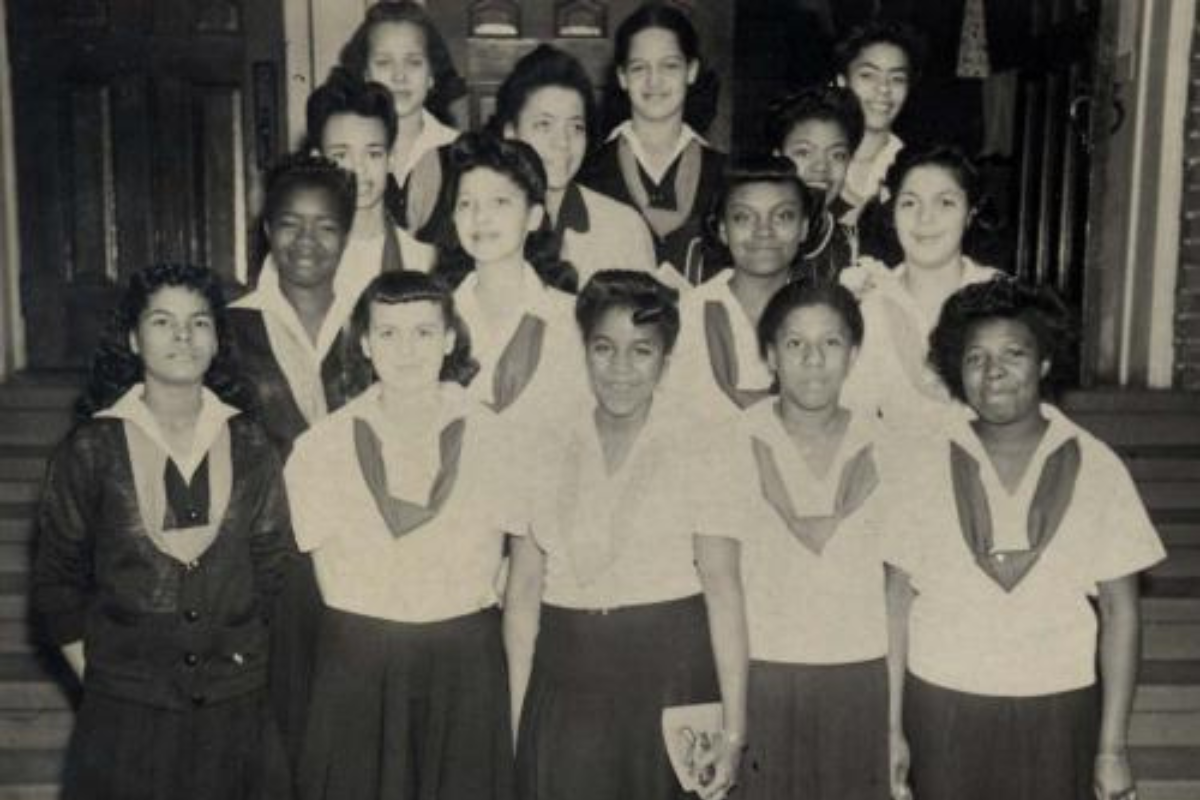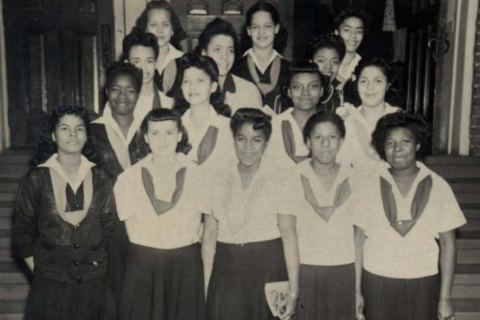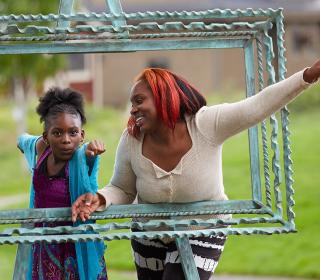From its inception in Seattle in 1894, our YWCA has been dedicated to the well-being of women and families from all backgrounds, and our work to advance social justice is grounded in the belief that all people deserve to live in dignity, free from violence, racism, and discrimination.
In its early history, YWCA was a multi-interest multi-cultural club for young women and girls in the area, giving them a safe space to learn and grow and engage with their community. YWCA's Seattle branch was one of the first racially integrated YWCA boards in the nation thanks to Bertha Pitts Campbell, one of the first Black members of the board of directors for YWCA Seattle, who helped change the YWCA board policy in 1930 allowing her to have a vote in meetings.
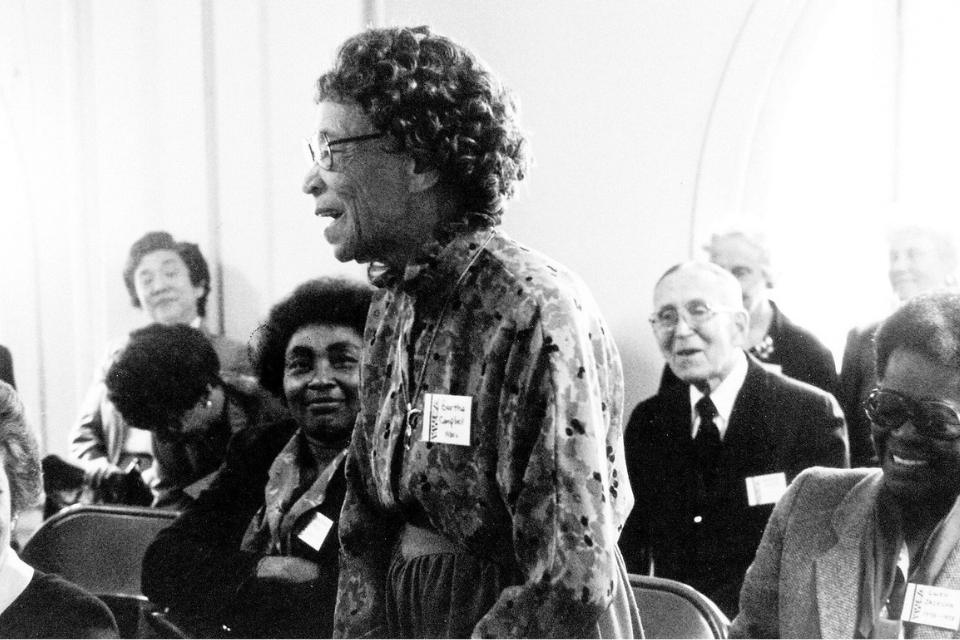
YWCA established a club for African American women called the Culture Club, and a branch was introduced in Seattle’s Central district in 1919. Our Phillis Wheatley Branch (named for the famous black poet of the Revolutionary War era) originated from this Culture Club, and it provided one of the few public meeting places for the Black community, many of whom lived in the area due to the city's redlining practices. Despite YWCA’s long-held inclusive philosophy however, African-American women could not rent a hotel room in the downtown building.
A history of growth and change
There were moments in YWCA’s history where past laws and societal norms meant YWCA perpetuated racial inequity within its own walls. Dorothy Height, a major leader of the civil rights and women's rights movements, was a large reason why this changed. In the 1920s, Dorthy was denied access to the central YWCA swimming pool in her hometown of Pittsburgh, Pennsylvania. This experience fueled her desire to desegregate YWCAs across the nation and provide access to all women of different backgrounds. Although her ideas were met with resistance and hesitancy, eventually, a “One YWCA” was created – a policy which would make YWCA move as a single unit indivisible on its path forward towards progress. The Board determined that “if a given association has a racial branch, it must use every device to mitigate the separateness inherent in this form of organization.”
Segregation existed within and outside of YWCA, stemming from both law and societal norms, and progress needed to start from within. One way this was achieved was with an interracial national board and a new set of policies for racial inclusions within local associations, which was implemented between 1920 and 1948. Although change was slow and messy, these policies allowed YWCA to become an important example in the civil rights movement, and YWCA became one of the first groups in the US to lead the charge toward interracial integration.
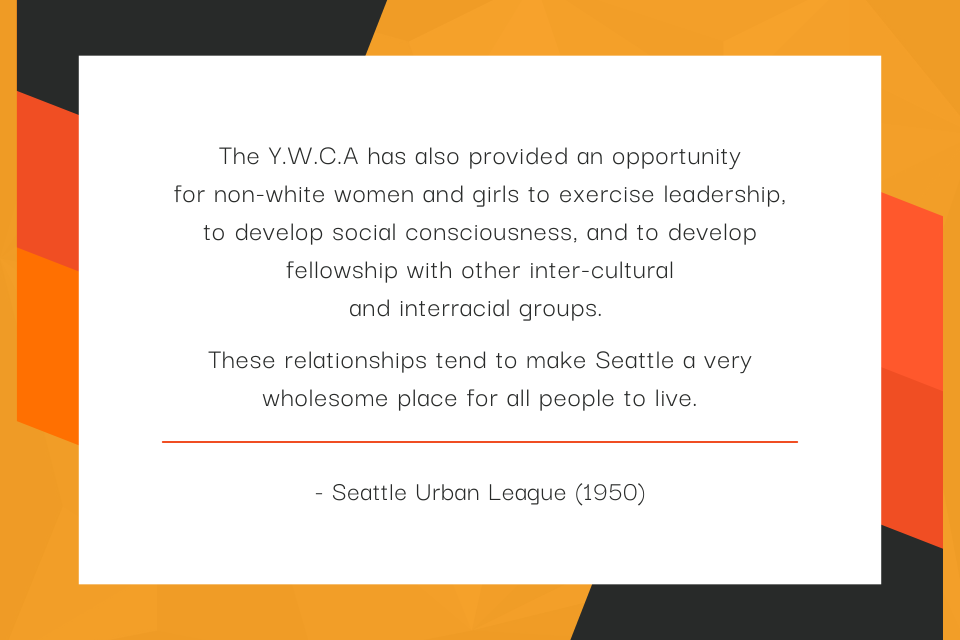
Building a movement toward justice
At YWCA, we know that we cannot empower all women unless we work to eliminate racism. In 1970, YWCA USA adopted the One Imperative: “To thrust our collective power toward the elimination of racism, wherever it exists, by any means necessary.” YWCA Seattle began providing specialized domestic violence services for Black women in Seattle and King County in 1989, and in 2004, YWCA USA created a new logo that includes “eliminating racism, empowering women” with eliminating racism purposely placed first to symbolize the organization’s commitment to racial justice.
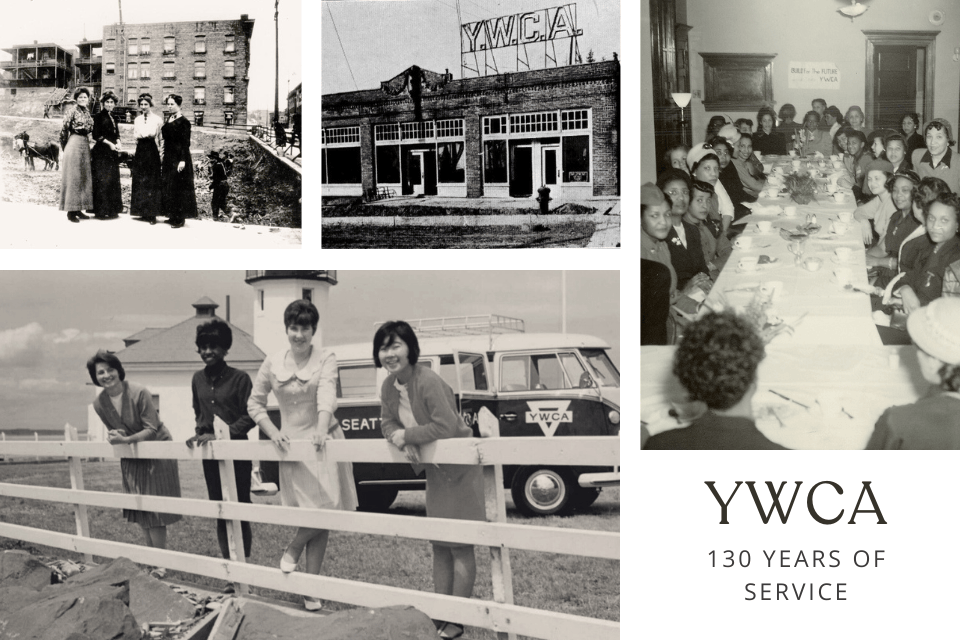
Beginning in 2009, YWCA began the challenge of deepening the integration of racial equity and social justice in every aspect of its work by creating The Race and Social Justice Initiative (RSJI). The Race and Social Justice Initiative is YWCA’s expression of its commitment to eliminate racial disparities, raise up the voices and experiences of women, and achieve racial equity and social justice internally and externally.
The three basic goals of RSJI:
- Cultivate an internal culture which supports the elimination of institutional racism, sexism, and other discriminatory practices.
- Increased knowledge on the intersection of poverty, class, race, and gender.
- Support authentic, trust-based relationships with communities and each other.
When we’re able to recognize the interconnected experiences of discrimination and disadvantage that women face from their overlapping identities, only then are we able to take steps forward to create a more united and kind world where all are treated with respect and dignity — a world where justice Just Is.
Save the date for our 2024 Stand Against Racism Townhall on April 26 and learn more about speaker lineup and registration by signing up for YWCA's monthly newsletter.
Ana Rodriguez-Knutsen is the Content Specialist for YWCA's Marketing & Editorial team. From fiction writing to advocacy, Ana works with an intersectional mindset to uplift and amplify the voices of underrepresented communities.
We share the stories of our program participants, programs, and staff, as well as news about the agency and what’s happening in our King and Snohomish community.
